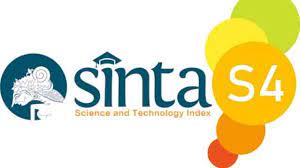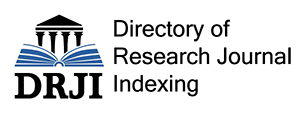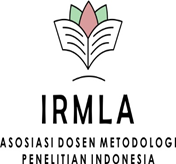Implementation of Al-Qur'an Integration in the Teaching and Learning Process
DOI:
https://doi.org/10.51276/edu.v5i1.672Keywords:
Al-qur’an , Integration , Teaching and Learning ProcessAbstract
In the Qur'an, knowledge is seen as something special that makes humans superior to other creatures. The importance of instilling religious and spiritual values in general learning is to increase faith and piety to God Almighty in respecting the universe. The research aims to see how the integration of the Qur'an is implemented in the teaching and learning process, in which the Qur'an is science based on revelation, the hadith of the prophet, and the ijtihad of the scholars, while general science is based on human reasoning based on empirical data, through research. This research uses a qualitative descriptive approach with a phenomenological research type. In this study, the sampling technique used was snowball and purposive. The procedures and techniques used in collecting data in this study are qualitative: observation, FGD, and documentation. The stages of this study presented three stages, namely 1) the pre-field stage, 2) the fieldwork stage, and 3) the data analysis stage. The result of the research is that integrating the Al-Qur'an in the teaching and learning process can be applied well, with efforts to provide training related to the integration of the Al-Qur'an. Implementing Al-Qur'an integration is carried out by internalizing Al-Qur'an values through studies in learning that can be carried out with curriculum integration, learning integration, and integration of Islamization of science.
Downloads
Metrics
References
A l-Qattan. (2000). Studi Ilmu-Ilmu Qur`an. Bogor: Litera Antar Nusa 1992.
Abunittaka. (2005). Integrasi Ilmu Agama Dan Ilmu Umum. Jakarta: PT Raja Grapindo Persada.
Ambarwati, S. (2020). Implementation of Thematic Learning Curriculum 2013; Multi Site Study at MIN 2 Kediri and MIN 1 Kediri City. Intelektual: Jurnal Pendidikan dan Studi Keislaman, 10(2), 255-271. https://doi.org/10.33367/ji.v10i2.1302
Ash'ari, H. M. (2011). Konsep Pendidikan Islam. Jakarta: Rabbani Press.
Aziz, M. E. F. (2019). Konsep Pembelajaran Perspektif Kh. Hasyim Asy'ari dalam Kitab Adab Al-'Alim Wa Al-Muta'allim dan Relevansinya dengan Konsep Pembelajaran dalam Kurikulum Pendidikan Agama Islam 2013. Undergraduate Thesis. Ponorogo: IAIN Ponorogo.
Creswell. (2015). Penelitian Kualitatif & Desain Riset: Memilih Diantara Lima Pendekatan. Yogyakarta: Pustaka Pelajar.
Fauziyah, R. A. ., Nursyamsiah, N. ., & Nurmala, M. . (2023). The Implementation of Muhawarah Learning in Madrasah Tsanawiyah. Edunesia : Jurnal Ilmiah Pendidikan, 4(2), 909–919. https://doi.org/10.51276/edu.v4i2.442
Firdaus, F. (2019). Dasar Integrasi Ilmu dalam Alquran. Al-Hikmah: Jurnal Agama dan Ilmu Pengetahuan, 16(1), 23-35. https://doi.org/10.25299/jaip.2019.vol16(1).2726
Kamma, A. W., Budiyanto, & Suwitho. (2023). The City of Tidore Kepulauan in Indonesia: Lecturer Performance in Private Higher Education. International Journal of Economics, Business and Management Research, 7(2), 135-149.
Khairun, K. (2020). Kemampuan Guru Mengintegrasikan Pelajaran Umum dan Agama Ditinjau dari Latar Belakang Pendidikan Prodi Umum Dan Prodi Agama Dan Intensitas Yang Tinggi Dan Rendah Mengikuti Kajian Keislaman Di Smp Islam Al Abidin Surakarta Tahun 2020. Undergraduate Thesis. Surakarta: IAIN Surakarata.
Khozin. (2016). Pola Interaksi Pesantren dengan Lingkungan Sosialnya dalam Perspektif Sosio-. Historis. In Progressive, 1(1), 71-90.
Mardayani, S. (2013). Pengembangan Bahan Ajar Fisika yang Terintegrasi Nilai-Nilai Ayat Al-Quran pada Materi Gerak untuk Pembelajaran Siswa Kelas X SMA. Pillar of Physics Education, 1(1), 39-47. https://doi.org/10.24036/1067171074
Moleong, L. (2014). Metodologi Penelitian Kualitatif. Bandung: Teenager Rosdakarya.
Mualimin, M. (2020). Pengembangan Nilai Islami Peserta Didik melalui Integrasi Al-Quran dan Hadis dalam Pembelajaran Biologi. Humanika, 20(2), 129-146.
Nurjannah, A. (2016). Penanaman Nilai–nilai Islam Berupa Integrasi Al-quran dalam Pengajaran Ilmu Kauniyah melalui Rpp. Raudhah Proud to be Professionals: Jurnal Tarbiyah Islamiyah, 1(1), 47-64. https://doi.org/10.48094/raudhah.v1i1.7
Paramita, A., & Kristiana, L. (2013). Teknik Focus Group Discussion dalam Penelitian Kualitatif. Buletin Penelitian Sistem Kesehatan, 16(2), 117-127.
Rohmah, I. F. (2021). Pengembangan Kurikulum Sains Berbasis Al-Qur’an untuk Mewujudkan Integrasi Ilmu Pengetahuan dengan Penguatan Kompetensi Spiritual. Mufham: Jurnal Ilmu Al-Qur’an dan Tafsir, 1(1), 43-56.
Sabia, S., & Jam'an, A. (2018). Evaluasi Implementasi Pembelajaran Terintegrasi Tahfidz Al-Qur’an di SMP Muhammadiyah 5 Makassar. Competitiveness, 7(2), 188-202.
Sholihah, N., & Kartika, I. (2018). Pengembangan Modul IPA Terintegrasi dengan Ayat Al Qur’an dan Hadis. Lentera Pendidikan: Jurnal Ilmu Tarbiyah Dan Keguruan, 21(1), 12-22.
Sugiyono. (2013). Educational Research Methods Quantitative Approach, Qualitative, and R&D. Bandung: Alfabeta.
Suyanto, S. (2019). Fenomenologi sebagai Metode dalam Penelitian Pertunjukan Teater Musikal. Lakon Jurnal Pengkajian & Penciptaan Wayang, 16(1).
Zulfa, S. (2022). Integrasi Ayat-Ayat Al-Qur’an ddalam Pembelajaran Sains. Nihaiyyat: Journal of Islamic Interdisciplinary Studies, 1(2), 141-152.
Zulkarmain, L. (2021). Analisis Mutu (Input Proses Output) Pendidikan di Lembaga Pendidikan MTs Assalam Kota Mataram Nusa Tenggara Barat. Manazhim, 3(1), 17-31. https://doi.org/10.36088/manazhim.v3i1.946
Downloads
Published
How to Cite
Issue
Section
License
Copyright (c) 2024 Sukamad Sukamad, Urip Sulistiyo, Yanto Yanto

This work is licensed under a Creative Commons Attribution-NonCommercial-NoDerivatives 4.0 International License.












































